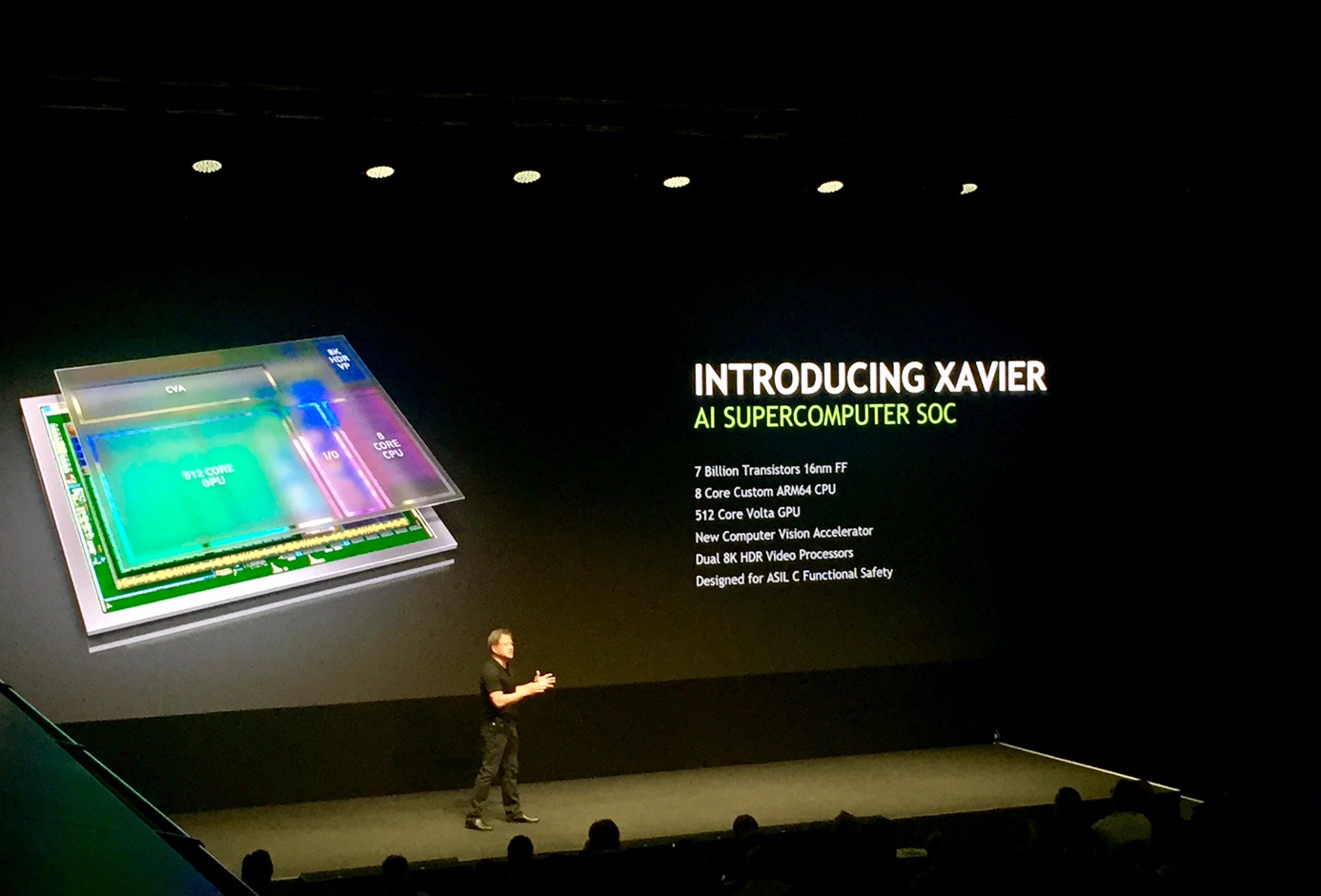Nvidia will power driverless cars with Xavier AI
The system-on-chip integrates a new GPU architecture called Volta

GPU giant Nvidia has unveiled a new artificial Intelligence (AI) supercomputer called Xavier, designed for use in self-driving cars.
Revealed on stage suring Nvidia's GTC Europe conference in Amsterdam today, Xavier is a complete system-on-chip (SoC), integrating a new GPU architecture called Volta, a custom -core CPU architecture, and a new computer vision accelerator.
"A super computer SoC this is the largest processor endeavour that we have ever done. No only is it large, it's multi-function, and throughput is really quite tremendous," said the firm's CEO, Jen-Hsun Huang.
"This is the greatest SoC endeavour I have ever known, and we have been building chips for a very long time," Huang added.
The processor will deliver 20 TOPS (trillion operations per second) of performance, while consuming only 20 watts of power. As the brain of a self-driving car, Xavier is designed to be compliant with critical automotive standards, such as the ISO 26262 functional safety specification.
"It will support HD cams, lidar and radar, powering three fundamental things: deep learning, computer vision and HPC," Huang added.
Packed with 7 billion transistors, and manufactured using 16nm FinFET process technology, a single Xavier AI processor will be able to replace Nvidia's Drive PX 2 configured with dual mobile SoCs and dual discrete GPUs, at "a fraction of the power consumption", the firm said.
Get the ITPro daily newsletter
Sign up today and you will receive a free copy of our Future Focus 2025 report - the leading guidance on AI, cybersecurity and other IT challenges as per 700+ senior executives
Nvidia is hoping that Xavier will help bring self-driving car technology to automakers, tier 1 suppliers, startups and R&D organisations that are building autonomous vehicles, whether cars, trucks, shuttles or taxis.
Xavier samples will be available the fourth quarter of 2017 to automakers, tier 1 suppliers, startups and research institutions who are developing self-driving cars, Nvidia said.
The news comes the same day Nvidia announced a partnership with satnav firm TomTom to develop artificial intelligence and create a cloud-to-car mapping system for self-driving cars.
The deal will combine TomTom's HD map coverage, which already spans more than 120,000 km of highways and freeways, with Nvidia's Drive PX2 computing platform to accelerate support for real-time in-vehicle localisation and mapping for driving on the highway.
-
 Should AI PCs be part of your next hardware refresh?
Should AI PCs be part of your next hardware refresh?AI PCs are fast becoming a business staple and a surefire way to future-proof your business
By Bobby Hellard Published
-
 Westcon-Comstor and Vectra AI launch brace of new channel initiatives
Westcon-Comstor and Vectra AI launch brace of new channel initiativesNews Westcon-Comstor and Vectra AI have announced the launch of two new channel growth initiatives focused on the managed security service provider (MSSP) space and AWS Marketplace.
By Daniel Todd Published